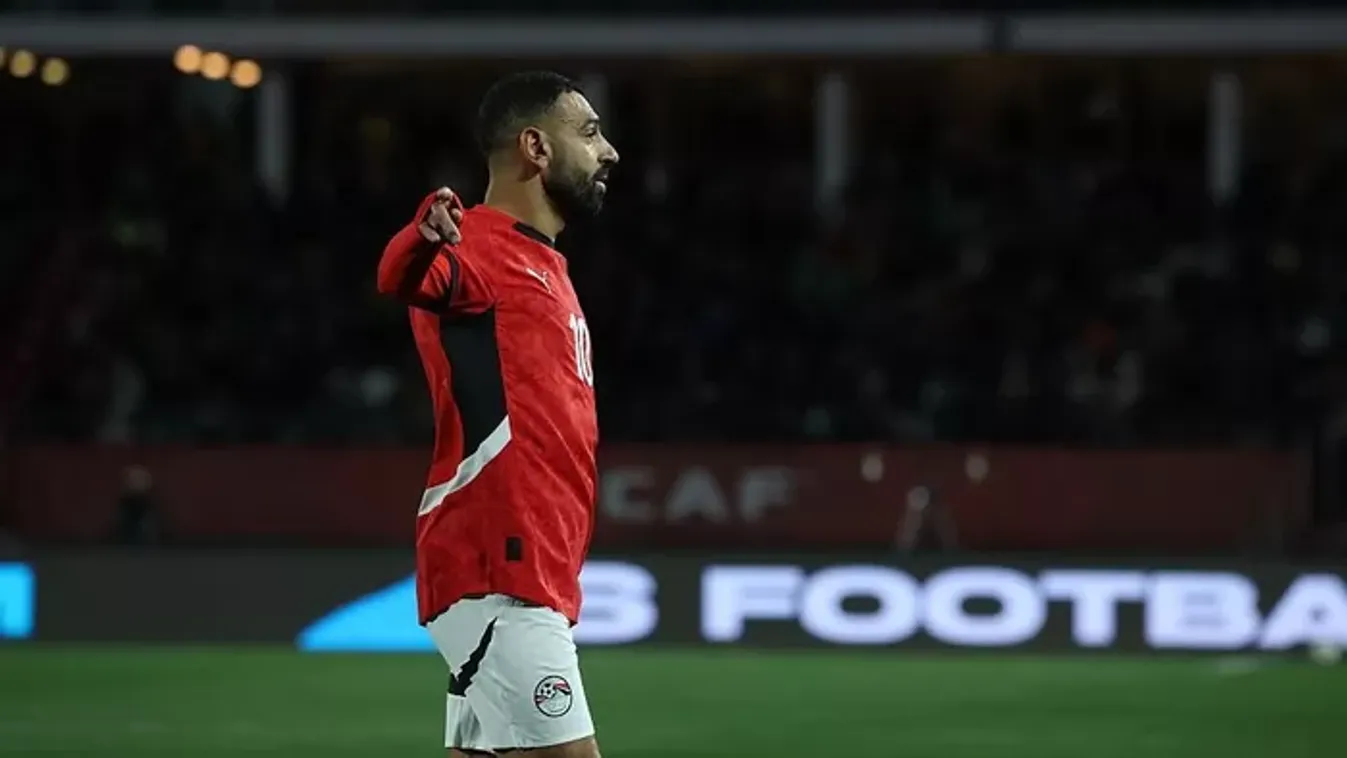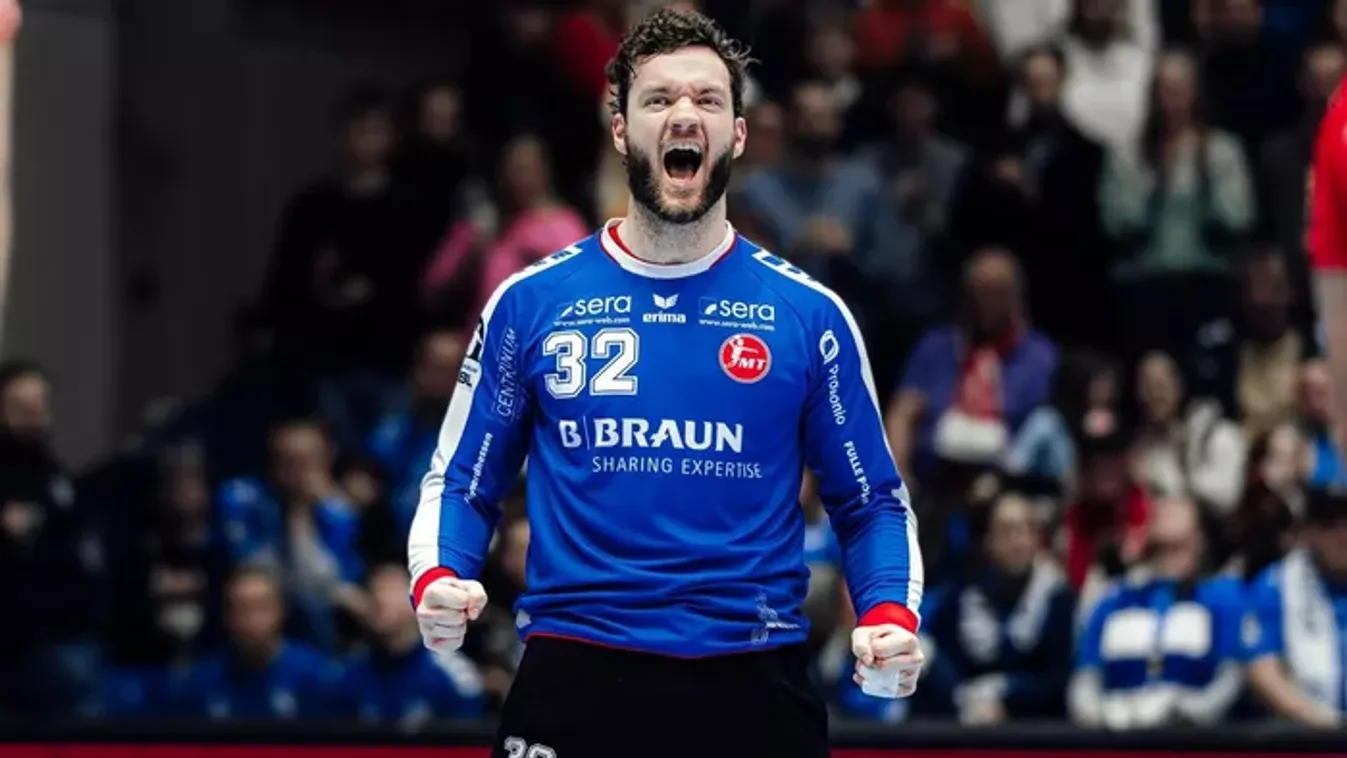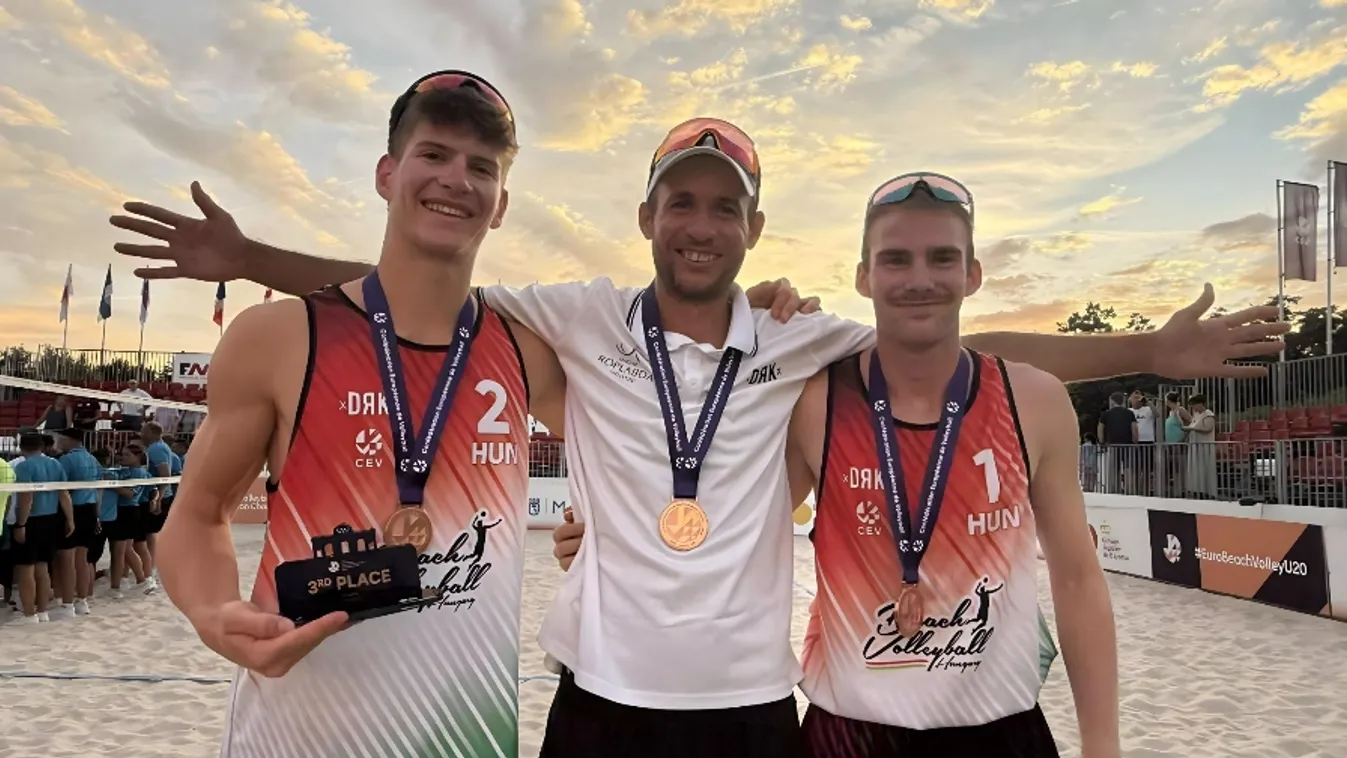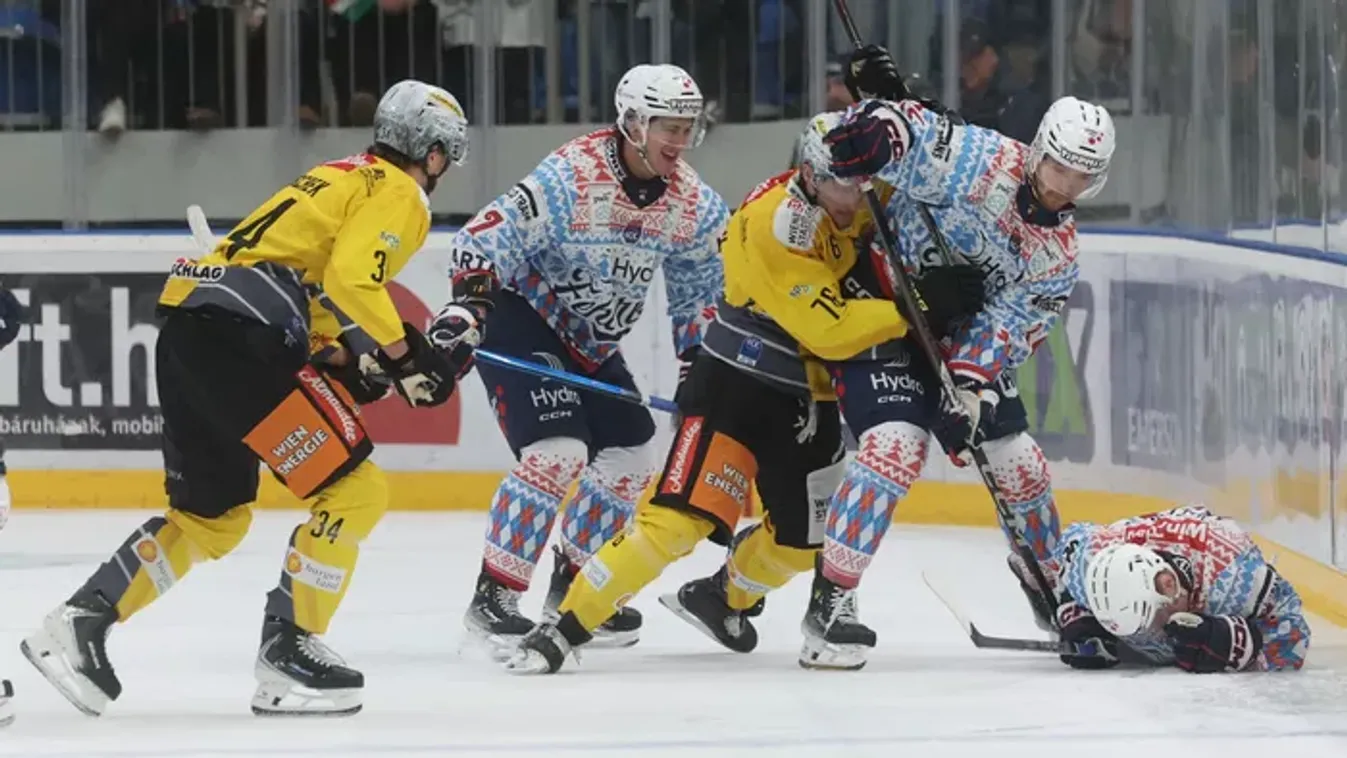Birth: 01.04.1927., Kispest
Player carreer: 1939-1956: Kispest, then Budapest Honved (Hungarian Army team), 1958-1967: Real Madrid
Coach carreer: 1967: Hercules ALicante, 1967: San Francisco Gales, 1967-1968: Vancouver Royals, 1969: Alaves, 1970-1974: Panathinaikos, 1974-1976: Colo Colo, 1976-77: Saudi Arabia, league captain, 1977: Murcia, 1978-1979: AEK Athens, 1979-1984: Al-Masri, 1985: Sol de America, 1986: Cerro Porteno, 1988-1991: Panhellenic South Melbourne, 1993: Hungarian league captain
Successes as a player: Hungarian champion (1949-50, 1950, 1952, 1954, 1955, and a not official champion in 1956), Spanish champion (1960-61, 1961-62, 1962-63, 1963-64, 1964-65, 1966-67), Spanish Cup Winner (1962), BEK (European Cup of Champion Teams) winner (1959, 1960, 1966), World Cup Winner(1960), Olympic champion (1952), Silver medal on the World Championship (1954)
Successes as a coach: Greek champion (1969-70, 1971-72, 1978-79), Australian Champion (1990-91), Australian Cup winner (1990)
Acknowledgements: Top goal scorer of Europe (1948), World cap (1963), European cap (1965), Member of the FIFA Hall of Fame (1998), the best Hungarian player of the XX. century (2001), Sportsman of the Nation (2004)
His Records: the most goals in one match (7, 19. February 1949.), the most goals in a season (50, 1948), the third most efficient football player in the XX. Century (489 goals), the third most efficient football player of Hungary (357 goals, 1943-1956), the top goal scorer of the Hungarian cap (84 goals), the 13. most efficient player in the Spanish league (155 goals, 1958-1967), the third top goal scorer in the European Cup of Champion Teams
He could also be a tinker or a baker, a postman or a metal-worker. But Ferenc Puskás became a football player – one of the best ever players of the World. The best is ours. From Kispest to the world-wide fame. On the other hand, the amazing talent of the son of the semi – professional player has appeared soon, and the left legged forward player became a famous, famed football player in seconds. He could not be anything else.


Puskás (Purczeld) Ferenc
Yes, Kispest. The Purzeld (the father changed his family name to the Hungarian Puskás only in 1937) family moved to the nowadays not existing small flat at the Újteremtő street in 1929, when the householder became a justified football player of Kispest. However the Puskás family did not escape from the poorness relevant to those ages and the hardly upgrading working class, “Öcsi” (his Hungarian nickname meaning Little brother) - since his most known nickname came from home – had a happy, balanced childhood. It was completely fulfilled with football. Since there was no other possibility to spare time activity, local children played football at the ground near the house of the parents all day. Nevertheless, the father, the neighbours, and the passers on the street pointed out, that the small left legged kid is smarter than the others are. The all day long abandoned football play, the cheeky dodges and huge goals were just disturbed by the mother sometimes, when she sent her little son to the near tobacco shop for cigarette or anti-headache candies.
Moreover, the little Öcsi was an obedient, good boy at home, while he absorbed the everyday roguery of Kispest streets. However, who would believe, that the most famous Hungarian of the world loved animals? He was hardly 10 when he stole home a mouse found on the street. Then at home he put it in a jar, fed and watered it, and took care of the little rodent as a good keeper. Once the mouse escaped, ran away and nobody found it again. But Öcsi’s mother was very astonished realizing that it tried all the food in the larder and all the bags were fret. Auntie Manci clobbered Öcsi well this time.
A few people know that Ferenc Puskás liked to read. His favourite childhood books were the cheap Indian- and cowboy stories, which were very popular that time. And when he could afford from his pocket money, he ran to the Royal cinema at the Üllői street. But he did not spend his forints on comedies; he liked the gangster and wild west stories with gunfight.
While calling back his childhood we have to mention his friendship with József Bozsik. It is an unbelievable, fabular story, but the world famous grown ups had been friends since their small childhood. The Bozsik family happened to live in the same house where Puskás’s did, and since both boys, Öcsi and Cucu also loved football, they became friends soon. When they did not run around the ground, they sloped round the streets. They often raced with the running yellow tram at Sárkány street (today it is Ady Endre street), and sometimes when they had no money for tickets, they dig under the fence and crept to the stadium. At times they stole stockings to make rag-ball.
He finished the primary school in Kispest. However he was not an eminent schoolboy, but he completed the eight mandatory classes without failure.
Cowboy stories, movies, pets and the girls from Kispest – the wildest 30s were still about them, but everybody already knew that.
Memories
Éva Puskás, younger sister of Ferenc Puskás: Öcsi always stole mum’s stockings because the rag-ball was made of it. He knew it very well how to make and compact the rag-balls. He was not interested in anything else in his childhood, but football and fellows. However, he was not a bad boy who is just maundering and mooching on the streets. He did not go anywhere in the evenings. If there was no football match to be played, he was at home. He liked to read and we used to go to cinema as well. Of course, he was not interested in romantic films that I wanted to see. Just the cowboy movies with gunfight. We were not rich, but we have a happy and beautiful childhood. We lived in a small flat with one room and a kitchen near the Kispest ground. We had only one room and five of us slept in it. However, we were happy.
László Bozsik, the long ago neighbour of Puskás’s, younger brother of the legendary József Bozsik: „He always bought himself some sweets, and he could have one candy in his mouth for hours, and anyhow we asked him, he did not give us one either. That time of course he was a very young child, later he helped anybody in anything. We had a brilliant friendship, and everybody knows that he and my brother Cucu were kittens in a basket, they became football players together. He loved to play football very much, and he could go by train for hours for a little football play during the war period. That time we survived the bombings in the Kiskunság, and small cups were organized there where there was no need for a certificate, anybody could play. So “Öcsi” traveled to us just to play.
István Cserjés, Puskás’s childhood friend, and colleague player in Kispest: „Me and “Öcsi” were born in the same year, we played together on the ground, then in Kispest. There was a sanded site among the houses where we played a lot in our childhood. I am just saying it because it is often said about the Brazilians that the sand develops the skills very well. So, we have the sanded playground just like they had at the beach. Öcsi loved to play football so much that he came to play at the square even when he was NB I (1st Level National League) player. I remember his father, who was his coach at Kispest, shouted from their balcony to stop playing since Öcsi had a championship in the evening. We knew that he would be a great football player.
László Bozsik, the long ago neighbour of Puskás’s, younger brother of the legendary József Bozsik: „He always bought himself some sweets, and he could have one candy in his mouth for hours, and anyhow we asked him, he did not give us one either. That time of course he was a very young child, later he helped anybody in anything. We had a brilliant friendship, and everybody knows that he and my brother Cucu were kittens in a basket, they became football players together. He loved to play football very much, and he could go by train for hours for a little football play during the war period. That time we survived the bombings in the Kiskunság, and small cups were organized there where there was no need for a certificate, anybody could play. So “Öcsi” traveled to us just to play.
István Cserjés, Puskás’s childhood friend, and colleague player in Kispest: „Me and “Öcsi” were born in the same year, we played together on the ground, then in Kispest. There was a sanded site among the houses where we played a lot in our childhood. I am just saying it because it is often said about the Brazilians that the sand develops the skills very well. So, we have the sanded playground just like they had at the beach. Öcsi loved to play football so much that he came to play at the square even when he was NB I (1st Level National League) player. I remember his father, who was his coach at Kispest, shouted from their balcony to stop playing since Öcsi had a championship in the evening. We knew that he would be a great football player.
However, the second world war was in progress, Ferenc Puskás did not become a soldier because of the football: after his debut in 1943 he became well known all over the country in seconds, and in 18 champion games in 1944 he scored seven goals.
After the war the Kispest became much better thanks to its own trained young player József Bocsik and Cucu’s good friend Ferenc Puskás. The team gained silver medal on the championship and Puskás scored 32 goals in 30 games. Next year he became a top goal scorer with 50 goals.
Politics set a high value on sports during these years, and since Puskás reached the age where the mandatory National Army Service had to be completed, he met the army in a special way. It was commissioned in Moscow that sport teams of the army and the big labour unions must be formed in all socialistic countries. It was specially managed at the end of 1949 in Hungary (Puskás was only the second on the goal list with his 46 goals following his friend Ferenc Deák). By creating huge national sports clubs, Gusztáv Sebes, the leader of the communist sports management, collected all the people into one or two clubs who were sent to build up the future cap. Because of political reasons, the huge sport team of the army was formed from the previously suburb club of Kispest, and the best young players were ordered to join. Moreover most of the cap players joined here sooner or later. This is how the giant association of Budapest Honved was created with no roots, and the players “joined the army”. Of course it was a naive idea to form real soldiers from star footballers, since the idea owners imagined ideal socialist people in uniforms with effective sport activities, but Puskás and his teammates withstood. Their joining procedure was celebrated, the training began, but after some months of affrays and disobedience the leaders found safety in deciding that the sportsman could continue their official careers at home instead of the barracks..
In 1950 the team called Honved already but consisting of mainly Kispest players became a champion, moreover it successfully doubled it in autumn (there was a semi-season championship, because the domestic system was changed to the soviet type spring-autumn system), just like Puskás Öcsi did it who became a Hungarian top goal scorer with first 31 then 25 goals. In 1951 Honved gained silver championship medal and Puskás made 21 goals, and two years later he became a top goal scorer for the fourth time as well with his 27 goals. At the year of the Swiss world championship in 1954 Puskás was a champion for the fourth time with his Honved team, and he celebrated his fifth championship title a year later and also the Silver medal of the Hungarian People’s Republic Cup. Honved was mentioned as the world’s best club these days which collected among the caps: Gyula Grosics, Sándor Kocsis, Zoltán Czibor, Gyula Lóránt és László II. Buday as well.
A rumor had it that Puskás should have to lose weight, and he is not as good as he was. Perhaps this is why he performed badly in 1956; however he also became fourth at the first Golden Ball voting of the France Football. The championship was interrupted because of the revolution, but Honved was the first team on 23 October. Puskás started a West – European tour with the team. The original purpose of the tour was that Honved had to play against Bilbao within the second run of the European Cup. The game was held (the Basques won 3:2), and because of the situation in Budapest, the return match had to be held abroad in a natural ground in Brussels. The players here did not really wanted to win, it got about losing the European Cup on purpose (the end was 3:3) so they were allowed to travel to the already fixed South African tour. At the beginning of 1957 - with several domestic stars and after several successful European charity plays – they traveled to Brazil, but without the permission of the Hungarian Football League. FIFA also restricted the Honved tour team as a request of the Hungarian leaders. Puskás and his teammates were disappointed when they returned to Vienna, where Öcsi decided that he is not coming back to Hungary with his family.
Ferenc Puskás played in 349 Hungarian League matches from 1943 to 1956 and gained 358 goals. He became a champion five times and a top goal scorer four times – it is an incomparable achievement! And his career was far to its end!
----
At the first part of the 50s the Hungarian League was the best one of the world with a captain of abiding ascendancy called Ferenc Puskás..
If we mention the Golden Team, we always think on the Hungarian League which terrorized and amazed the world from the beginning of the 50s to the revolution of 1956. The classical team with a legendary list of Grosics–Buzánszky, Lóránt, Lantos – Bozsik, Zakariás – Budai II, Kocsis, Hidegkuti, Puskás, Czibor. The captain of the team was Ferenc Puskás based on the equal decision of the leaders and the teammates. The inside left from Kispest made his debut for the Hungarian national team in 1945 against Austria, and had become an indispensable part of the team since then. His ascendancy was abiding at the ground and above, he changed the tactic several times even during the football game if he needed it, and the others followed his orders.
As the first serious success of him with the national team, they won the Helsinki Olympic Games in 1952. The team played confidently with Puskás’s lead, who gained four goals at the game. The final was won against Yugoslavia by 2:1 and the lead was gained by him (after he missed a penalty kick). This time our team had been unbeaten for more than 2 years, and this sequence was only beaten in the final of the world championship in 1954. The next year after the olimpic games, in 1953, the team traveled to the opening of the Roman Olimpic Stadium and Hungary claimed the trophy with a 3-0 win over Italy.
Match of the Century. This notation was given weeks before the England – Hungary match in 1953 by the English press. No other friendly game was followed by such an interest since then, than the English – Hungarian one was at the Wembley stadium. The olimpic winner Hungarian team primarily drew attention to itself by winning over the creators of the sport with 90 years without defeat on home soil. Ferenc Puskás was successful two time as well on the legendary 6:3 winning, his first goal is world famous nowadays as well. He dragged the ball back near the English captain, Billy Wright, and whacked it high into the net. There were several films and books produced about the historic football match and not just in Hungary, but all over the world. The return match was held in 1954 before the world championship in the Népstadion, where the Hungarian national team had a more confident conquer of 7:1. Puskás scored 2 goals again in this match.
The Hungarian team was in a fantastic condition, and prepared to the Swiss world championship in 1954, where it was considered as the team with the most chance to win. The world championship also started well for the Golden Team, they won against South Korea (9:0) and the German Federal Republic (8:3). In these two matches Puskás scored three goals, but the Germans did not spare him, and he was injured. He could only return at the final of the world championsip. The Hungarians dropped out Brazil in the quarterfinals, and Uruguay in the semi-finals, and this is how they were prepared to the final in Bern on July 4, where they were leading 2:0 in the nineth minute, but the Germans changed it mainly thanks to the judge, who had only accepted one of Puskás’s two standard goals. Four and a half years without defeat was broken at the most important moment. The national team performed primely in the next two years until the revolution in 1956. After 1956, Ferenc Puskás immigrated and he was not allowed to play in the national team. He returned there in 1993 after the political system change as a federal captain and took temporary charge of the national team for four matches.
----
The world famous football team of Honved traveled by bus during the days of the 1956 revolution to Western-Europe, to prepare for the European Cup match agains Athletic Bilbao in a calm way. The History organized, that the return match could not be held in Budapest, but when the team had a match in Bussels in December, they decided to accept the invitation for a South American tour. This excursion was not permitted by the communist Hungary, but most of the team started on. After they returned to Vienna in January, some of them decided not to come back to the Hungarian autarchy that seemed to stabilitate again. There was Ferenc Puskás among them as well. The dissidents were excluded for two years by FIFA forced by the Hungarian Football Federation. So they were embroiled in an existentially hard situation.
Ferenc Puskás had a stomach disorders and considerable overweight so he had even worse chanse to play football. However many people did not think he was able to be a professional player again, his friend, the old Kispest technical leader, Emil Östereicher trusted him. The Hungarian sport leader became a Real Madrid employee as the advisor of the president Santiago Bernabéu, and immediately started to tempt him to have Puskás as a player. First, the presidente did not want to hear about buying Puskás. Östereicher did not give up, and he persuaded him to have a contract with Puskás, although Puskás have not played for months and had a considerable overweight. Six weeks after his contract was signed, his overweight disappeared; with an unbelievable hard work, he lost almost 15 kilograms.
His first match as a Real player was in Buenos Aires against River Plate, and on September 2, 1958 he debuted in Primera Division agains Oviedo. He also scored a goal on the 5-1 successful championship in Madrid. The striker, who was calle „Canoncitónak Pum”, which means „Small Cannon” played in 372 matches as a Real Madrid member and scored 324 goals. He was a Spanish Champion six times, top goal scorer four times, and he was one of the leading persons of the then best club of the world, the Real Madrid, which won the first five(!) Games of the European Cup.
But his carreer at Madrid did not start hardly just because of his overweight. The trainer, Luis Carniglia did not like him very much. He said that his own son plays better than the Hungarian player. However, when Bernabéu wanted to sell Puskás to the Belgian Standard Liége and he lent him to play in the rival Atlético Madrid, the striker has a good luck. He was brilliant o the ground, shot goals, and then the president did not want to get rid of the Hungarian magical striker. Although Carniglia won everything in that Season with Real, since he left Puskás out on the European Cup, Bernabéu fired the coach.
The teammates held Alfredo Di Stéfano, the famous teammate of Öcsi, in great honour. If there was somebody new and he did not like him that had to go. He was not happy when he heard Puskás’s coming, but he soon realized the benefit of playing together with one of the best players of the world: Puskás passed him several goals, and soon he forgot all the negativity of the beginning. Their friendship with Pancho - Di Stéfano named Puskás as Pancho – withstood, they greatly appreciated each other through long years..
But is was not just Di Stéfano who taked to like the Hungarian talent, but all Spain did. Puskás received nationality in 1961, and played in four national team matches as well, and also took place in the world championship in Chile. He won three times the precedessor of the European League, the European Cup of Champion Teams with Real Madrid, and scored four goals in the final (Real–Eintracht Frankfurt 7:3) which is an unbreakable record were now, he became the top goal scorer of the sequence two times, and the royal garde won the first world cup by the help of his lead (in 1960 a match against Palermo in Madrid Puskás had two goals and two goal passes resulting a 5:1 success). At the end of the year he received second place at the Golden Ball vote despite several Eastern European voter including the Hungarian one as well! did not vote on him to be within the first five..
Puskás retired from football at the age of 40 in 1967. His final match was celebrated in Madrid in 1969 against the Austrian Rapid. Seventy thousand people viewed him.
The honor for Uncle Öcsi in the royal club and within the Real Madrid fans withstand the years. Ferenc Puskás is everliving in Spain as well.
---- The carreer of Ferenc Puskás had finished in 1956 for several Hungarian fans since the domestic press did not mention anything about the successes abroad of the immigrant genious. The entries in lexicons were finished by “Left his country in 1956.” As if, he had never existed any more. But the nine years played at Real Madrid, the European Cup Champion titles, and that he was a member of the selected world team and his existence in the media did not disappear, but legends were infiltrating through the iron curtain about the somewhere living and brillianting Puskás. In addition, nothing was heard about that Puskás Öcsi as well, who after finishing the active playing besides and after short and not too successful business activities started a coaching carreer, and traveled through the world with this activity.
However the Hungarians were noted about his greatest success, about the final of the European Cup of Champion Teams (1971), since they saw him on television in the final against Ajax but the commentator hardly dared to mention his name. But not all the football fans know, that Ferenc Puskás worked as a federal coach in Saudi Arabia, he was a bench warmer at Vancouver Royals in the first professional league of North America, he worked at several smaller clubs around Spain (Allocate, Laves, Murcia), and with small intermissions he was a club coach in Egypt and Athens, but also worked as a trainer at several Latin-American teams in Paraguay and Chile, and we shall not forget to mention his last activity abroad: he had a lead title at the Australian South Melbourne Hellas (he was cup winner and a champion here at the beginning of the 90s).
Several of us remember that after being in quiet for 25 years, with a governmental permission he arrived home with moderate official meeting but with big celebration to play an “old boys” match, then after the political system change he almost repatriated. While his health allowed him to work, he did it for the Hungarian Football Federation using his honor and connections, ad he had been a federal captain as well for four matches in 1993. He was rehabilitated by the public immediately, but to a smaller intense by the politics and tried to compensate what was missed through decades.
Puskás received all the existing titles and awards at home (while NOB and FIFA gave him the highest order). The most important one may be the title of the “Sportsman of the Nation”, which was sent him two years ago, trying to recompense the greatest person of the Hungarian sport, but unfortunately it was too late him to recognize it.
The readers of the National Sport selected him to be the Sportsman of the Century in 2001 (practically to be the best Hungarian sportsman ever). The football genius received several awards in his last years, which were transported to his hospital room. Country leaders, FIFA- , UFA- or Hungarian Football Federation leaders, Real Madrid leaders and other important personnel and friends and teammates visited him at Kútvölgyi Street.
The special for of the Alzheimer’s disease was first diagnosed at him in 2000 and soon he needed continuous hospitalization, while awful disease spent his health. He was taken to the intensive care unit of the Kútvölgyi Clinic in the beginning of September in 2006 after his condition went suddenly wrong, and he had been artificially fed since then. His extremely strong heart fought against death for a long time, but he could not cope with his pneumonias.
His beloving wife, who had been his partner for 57 years, his daughter living in Spain and his two grandchildren and three great-grandchildren and also fans and admirers mourn the loss of Ferenc Puskás. ----
Ferenc Puskás was considered as the top goal scorer of the twentieth century in 1997 based on his goals scored at his first class championship matches by IFFHS, which deals with the football statistics all over the world. The records of the Hungarian fighter genius are unbroken of course since then, so we can state without any prejudice: Ferenc Puskás was the top goal scorer of the world ever.
And not only the fact, that he shot almost the same amount of goals at the approximately thousand registered scoring matches is amazing, but that is also amazing, that most of these matches were played with the world’s greatest teams. Puskás played with Budapest Honved, the Hungarian National Team and with Real Madrid in the strongest championships, biggest athletic games, greatest sport activities – and effunded the goals. He kept the average “one goal in every matches” equally in a countryside training match and in the European Cup final, even in the world championship and at the Olympic final as well, but he absolutely used to shoot a master trio of goals at the Real Madrid–Barcelona or the Kispest–Ferencváros title bout matches, he doubled against national teams like Italy and England, and scored three or four goals in the finals of the predecessor of the Champions League, in the European Cup of Champion Teams.
Puskás started indeed a goal in the 12th minute of the first match of the Hungarian National team (against the Austrians on August 20. in 1945) and then he reached 84 goals in 85 matches, and he established a fantastic world record by that while he was politically not allowed to play in the Hungarian National Team in the second half of his career.
He scored 514 goals when played in 529 lead championship matches! While he was a member of Kispest and Honved, he played 349 times and has 358 successes, he performed a bit less in Madrid over 30 in the best team of the world after a 2 years intermittence (inactive because of the FIFA prohibition), and he played in 180 champion matches and scored 156 goals.
He had fantastic rival strikers in both leagues, but Puskás became a top goal scorer four times here and there as well. At least 20 goals, but 50(!) happened as well.
He was the best goal shooter in the European Cup of Champion Teams within the 1959–1960 series (12 goals), and after 7 years as well in a dead heat. The final was most of all about him two times but both of the matches belong to the most important finals of the football history: in 1960 in Glasgow he scored four goals himself against Eintracht Frankfurt resulting a 7:3 success (still a record), while in 1962 he shot all the three goals as a Real player against Benfica, where his team lost (3:5). He was 35 years old then, but there was no problem for him to score four goals three years later in a European Cup match against Feyenoord.
If we say, that the most important thing in the football is the goal, then Ferenc Puskás is the greatest football player of the football history. ---- 1927: April 1.: Ferenc (Purzeld) Puskás, with a nickname of Öcsi was born in Budapest
1938: Puskás was 11 years old, and one year earlier than it is allowed, he signs a contract as Miklós Kovács in Kispest AC, which was the only club of Hungary that time (including of course the later privy of Budapest Honved as well)
1943: December 5.: Öcsi was introduced in the front at 16 against Diósgyőr and then he scores his first championship goals against Kolozsvár
1945: August 20.: He is introduced in the Hungarian National Team against Austria, and took the lead in the 12th minute and so the team resulted a 5:2 Hungarian success
1948: He gains his first top goal scorer title with 50 goals
1950: He is married with the 18 year old Erzsébet Hunyadvári in April
1952: Puskás’s daughter, Anikó was born this year, and elder Ferenc Puskás dies in the same year. He had not lived when his son received his gold medal at the Helsinki Olympic Games as the captain of the Hungarian National Team.
1953: November 25.: At the “Match of the Century” Hungary won against England with 6:3, Puskás scores two goals. That spring in Rome against Italy, they started the successes of that year with a 3:0 win, Puskás succeeded two times at that match, too.
1954: However our national team shoots the returning England with 7:1 (two Puskás goals) in the Népstadion, and they have the highest chance on the Swiss World Championship, after the several great victories, they fail against Western Germany in the final by 3:2. Puskás had been injured and missed matches for a long time, but returned for the final and scores an officially recognized and a not recognized (but official) goal.
1956: Puskás performs for the last time in the Hungarian National Team, and during the revolution days, he left the country with the Honved team to prepare safely to the matches of the European Cup of Champion Teams against Bilbao. At home, the situation did not become organized, but the next soviet occupation action stopped the revolution in blood.
1957: The last matches were performed in Honved during the not allowed South American tour. Puskás decides to stay in West with his family. Puskás was excluded from playing football all over the world for two years by FIFA forced by the Hungarian Football Federation since he left his country.
1958: Based on Emil Östreicher’s advice, who was the technical director there, the title owner of the European Cup, the Real Madrid, which is said to be the best team of the world, signed a contract with him however he had overweight and he is indebted. His exclusion was moderated, he played again that autumn.
1959: First victory of Puskás in the European Cup, although he did not play in the final.
1960: Puskás scores four goals alone in the European Cup final in Glasgow , which is said to be the best ever European cup, and so Puskás became a European Cup winner again second time (Real–Eintracht 7:3), he is the top scorer of the sequence, and he scores two more goals in the World Cup final (Real–Penarol 5:1). At the end of the year he received second place at the French Football Golden Ball vote despite several Eastern European voter including the Hungarian one as well did not put him to the first place because of political forces…
1961: He gains his first Spanish Champion and second Spanish Top goal scorer titles.
1967: He finished his payer career at the age of forty as a six times Spanish Champion, four times top goal scorer, three times European Cup winner. He started his coaching career this year, he spent some months at Deportivo Alavés, and then he became the trainer of the Canadian-American Vancouver Royals.
1969: He left Real Madrid and celebrated it with a match against Rapid Wien, all the incomes from the match was offered him by the club president Santiago Bernabéu
1971: Ferenc Puskás leads into the European Cup the mostly amateur Greek Panathinaikos team, but they defeated at the final in Wembley by 2–0-s against Ajax, who was at the top of its successes.
1973: Puskás’s first grandchild was born, Elisabeth Damborena Puskás, and two years later the second one, Réka Damborena Puskás
1981: After his immigration he returned to Hungary for the first time to shoot the movie about Golden Team and to play a full house “old boys” match at the Népstadion as a result of a long agreement and acceptance procedure. At that time, he is a club coach in Egypt.
1992: Ferenc Puskás permanently returned to Hungary with his wife, but they visited their family in Spain regularly.
1993: He became the federal captain of the Hungarian National Team for four matches; he receives the highest Hungarian State Award, the Middle Cross of the Hungarian Republic.
1996: The IFFHS selected him to be the top goal scorer of the century
2000: Ferenc Puskás was hospitalized because of his illness, and needs continuous care, while he was selected to be the Sportsman of the Century by the readers of the National Sport
2001: The internet fans selected him to be the Best ever player of the Real Madrid
2002: The government decides to name the new Népstadion about him at his 75. birthday, and the celebration is held at the match against Spain in August
2004: The Hungarian Government selects him to be the Sportsman of the Nation
2005: The Real Madrid came to play in Budapest in honor of him
2006: Ferenc Puskás passed away after a long and serious illness and six years of hospitalization.
Legfrissebb hírek
Ezek is érdekelhetik






